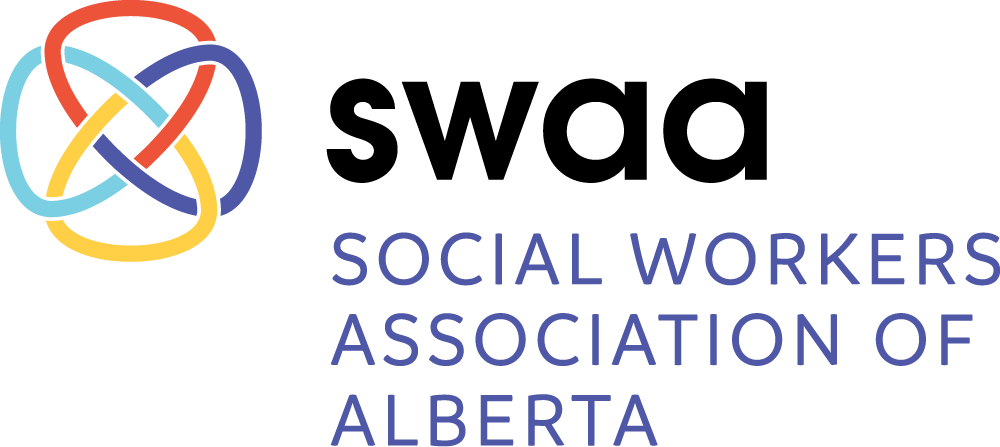World Day Against Trafficking in Persons
We are all born free and entitled to equal in dignity and rights (United Nations, 2021), yet human trafficking violates these freedoms and remains a grave issue here in Canada and globally. Human trafficking involves recruiting, transporting, or harboring individuals with the intent to exploit or facilitate their exploitation (United Nations, 2024). As we approach the 10th World Day Against Trafficking in Persons on 30 July 2024, it is vital we unite to take a stand against this human rights and social justice issue. This year's global campaign, "Leave No Child Behind," urges accelerated action to end the trafficking of children.
Police-reported human trafficking incidents under the Criminal Code have increased over the last decade, and according to Heidinger (2023) there were 3,996 police-reported incidents of human trafficking between the years 2012 and 2022. These statistics highlight the urgent need for increased awareness in Canada, prevention efforts, and support for victims (Heidinger, 2023).
Women and girls account for over 94% of identified victims, and approximately 82% of those accused of human trafficking are male (Heidinger, 2023). In Canada, nearly one quarter of victims are under 18 years old at the time of exploitation, and one in three victims of human trafficking globally involves a child (United Nations, 2021). This year's global campaign urges accelerated action to end the trafficking of children.
As social workers we can educate ourselves and others about the signs of human trafficking and how to report it, to save lives and dismantle trafficking networks. Response Advocates are available 24/7/365 by phone through the Canadian Human Trafficking Hotline 1-833-900-1010, and The Action Coalition on Human Trafficking (ACT) provides free, safe, and confidential response services, connections, and referrals for victims of human trafficking, by calling (780) 474-1104. The Social Workers Association of Alberta encourages members to improve their awareness of available supports and resources, such as access to safe housing, health care, counseling, and legal support, to help victims rebuild their lives.
Social workers can advocate for change and push for stronger laws and policies to combat trafficking and protect vulnerable individuals, by engaging devoted policy makers. We would also like to bring your attention to The Action Coalition on Human Trafficking in Alberta, a provincial non-profit and registered charity that provides direct front-line services to victims and survivors of human trafficking. The Action Coalition on Human Trafficking offers a free 60-minute online webinar called human trafficking 101 that is designed as an introductory training session for individuals with little to no knowledge about human trafficking. Their next event is Thursday August 17 at 12:00pm, with registration here.
Written by social work practicum student, Heather Pederson
Upcoming Events:
In honour of this day, SWAA is also excited to bring two exclusive workshops to our membership.
Demystifying Child Trafficking: A Conversation with Social Workers
Join us for a lunch-and-learn led by Dr. Ajwang’ Warria for a conversation aimed to introduce the complexities surrounding child trafficking identification and intervention.
Presented by the esteemed Dr. Ajwang’ Warria, co-Chair of the Olympic Refuge Foundation Think Tank and a UCalgary Transdisciplinary Academic co-lead on the thematic area of Cities and Societies.
Tuesday August 13, 2024 at 12-1pm
Human Trafficking 101: Service Provider Essentials
This two-hour training benefits service providers in law enforcement, healthcare, social services, government, and community organizations. Participants will engage in case studies to practice intake, needs assessment, identifying trafficking, trauma-informed interactions, and referrals.
Presented by ACT Alberta
Thursday November 28, 2024 at 6-8pm
References
Action Coalition on Human Trafficking (2022, n.d.). What we do. https://www.actalberta.org/what-we-do/overview
Canadian Human Trafficking Hotline (2024). Get help. https://www.canadianhumantraffickinghotline.ca/get-help/
Heidinger, L (2023, December 4). Trafficking in persons in Canada, 2022. Statistics Canada. https://www150.statcan.gc.ca/n1/pub/85-005-x/2023001/article/00002-eng.htm
United Nations (2021, March n.d.). Universal Declaration of Human Rights. https://www.un.org/en/about-us/universal-declaration-of-human-rights
United Nations (2024). World Day Against Trafficking in Persons. https://www.unodc.org/unodc/en/endht/index.html
